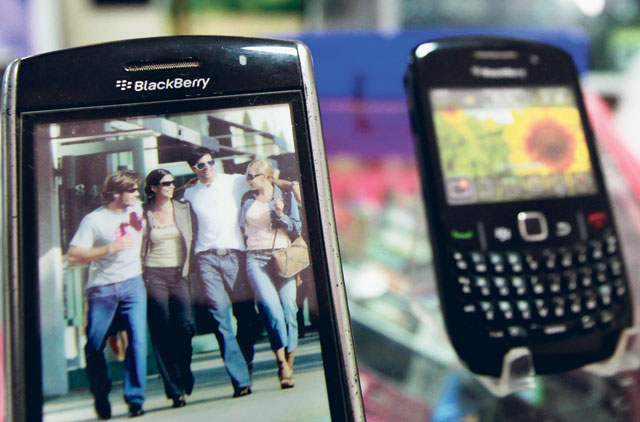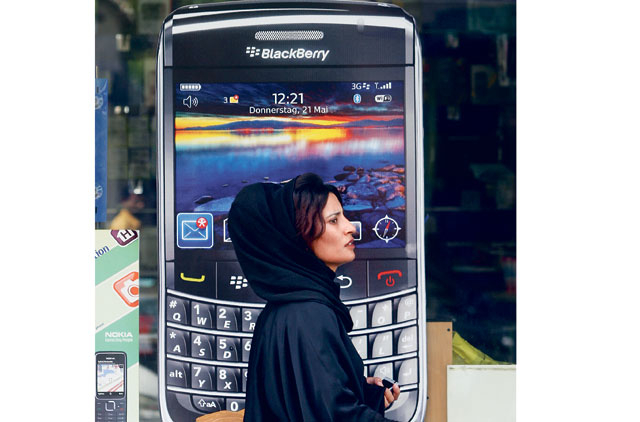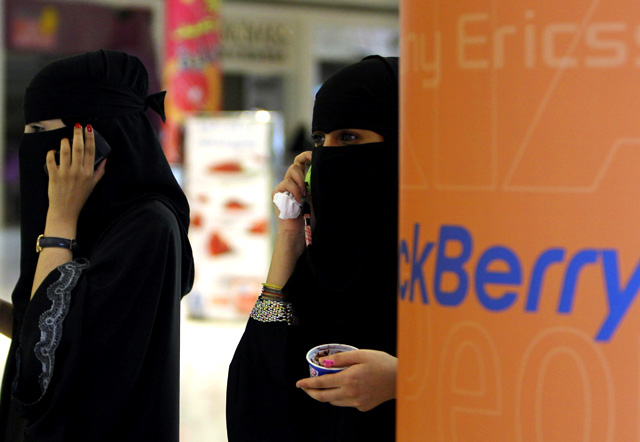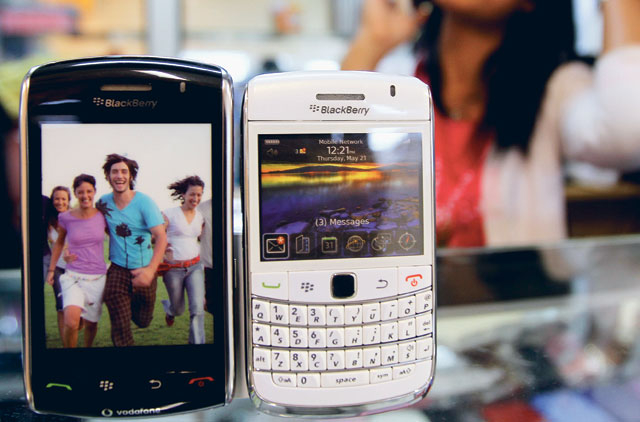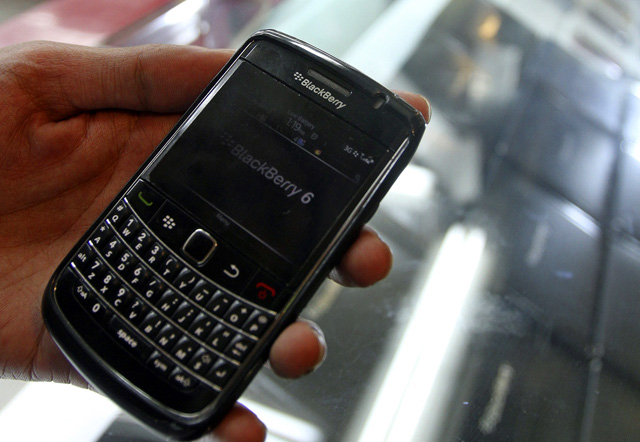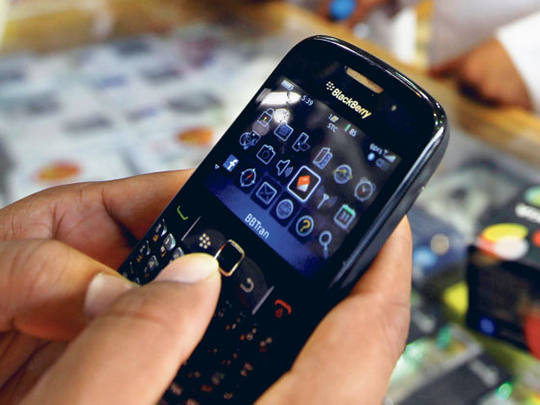
Riyadh: The makers of the BlackBerry were looking into the possibility of using servers in Saudi Arabia on Friday to avert a threatened ban on its Messenger services by Saudi government, which wants access to its encrypted network, a source said on Friday.
Despite some reports of temporary interruptions, BlackBerry users were able to access the Messenger service on Friday evening, hours after the kingdom had threatened to cut it off over concern it might be used to harm national security.
A source with direct knowledge of the negotiations said talks between maker Research In Motion and the Saudi telecom regulator had made progress.
"We are testing technical solutions with RIM...Servers to be more exact," the source told Reuters, speaking on condition of anonymity.
RIM officials in Canada have not returned calls seeking comment on the talks.
Two options
The source said the two options to resolve the row were servers in Saudi Arabia or a patch which would allow the government access to data in cases affecting national security.
The regulator, the Communications and Information Technology Commission (CITC), did not say whether it had begun enforcing the ban. Saudi Arabia is RIM's biggest Middle East market with about 700,000 users.
RIM is facing pressure to open its encrypted network to scrutiny by governments in circumstances affecting national security.
Similar concerns
India, Saudi Arabia, the UAE, Lebanon and Algeria have all voiced similar concerns which centre on access to communications sent through the device.
Together, those markets account for about 5 per cent of the Canadian firm's global customers.
The US and Canadian governments have expressed concern about implications from banning such services.
Al Hayat newspaper's online edition said on Friday in an unsourced report that RIM might resolve the Saudi situation by locating a server in the kingdom to handle some of the BlackBerry network's encrypted communications.
On Thursday, the source said RIM "showed a degree of flexibility that has not been there over the past three months. Progress is being made. We started debating the technicalities of new set-ups".
It is unclear how long a ban would last if the two sides are unable to reach a compromise over the company's encrypted network and the government's concerns. A technical solution might also mean a disruption to services.
"They should have done their research before allowing BlackBerry in the market," said BlackBerry user Rayan, a Saudi in his 30s.
UAE ban from October 11
Neighbouring UAE has 500,000 BlackBerry users and plans a more sweeping ban from October 11 targeting not only Messenger but also email and web browsing on the device.
Sources have told Reuters that the UAE government has also suggested RIM install a server handling BlackBerry traffic in the country.
The UAE could access the data it requires either through a local server or an encryption master key used in BlackBerry technology, said Shardul Shrimani, Middle East and North Africa analyst at IHS Global Insight.
"BlackBerry is not likely to offer a master key and essentially a server installed in the country would be similar to offering them a master key," Shrimani said.
"The main concern for the government is not monitoring business communications. What the government is worried about is a very small minority who would be using BlackBerry for any sort of illegal activity," he said.
RIM has stipulated that any Saudi agreement must apply to the kingdom's three mobile phone operators: state-controlled Saudi Telecom, Mobily and Zain Saudi Arabia.
"RIM will not engage in one-to-one talks with the operators about any solution it will adopt. They will have to take it, all of them," the source said.
The Canadian company said on Wednesday it has never provided anything unique to the government of one country and cannot accommodate any request for a copy of a customer's encryption key.
Lebanon enters fray
Lebanon on Thursday became the latest country in the Middle East to voice security fears over the handheld devices as the United States stepped into the growing row.
Lebanon's telecommunications regulator said Beirut would assess security concerns about the smartphones after the arrest of several telecoms employees suspected of spying for Israel.
In Bahrain, a spokesman for mobile provider Batelco told AFP his company already has alternative plans in case the Gulf state follows suit with a ban.
And in Kuwait, a VIVA Telecom spokesman said: "Until now we were not given any orders on new means of dealing with BlackBerry and the company will not block any of those devices' services."
India is mulling a similar move and, while Indonesia denied it was considering a suspension of BlackBerry services on Thursday, it did not rule out the option.
US to hold talks
Secretary of State Hillary Clinton said on Thursday that the United States would soon hold talks with the UAE and other countries about the issue.
"We are taking time to consult and analyse the full the range of interests and issues at stake because we know that there is a legitimate security concern," Clinton said, adding however that there was also a "legitimate right of free use and access."
The Saudi daily Arab News, in a report this week on its website, said an online survey of 331 people found 178 people opposed to the BlackBerry ban and 153 supporting it.
It said those who disagreed complained that no prior notice was given, with some having bought their BlackBerrys just days ago now lumbered with an expensive device that will not work as a smartphone.
The 153 people in the poll who supported the move said BlackBerrys "have had a very negative effect on the youth."
A woman, named as Um Aisha, told the paper she had confiscated her daughter's BlackBerry after she became overly attached to it to the point where it was affecting her health.
"My daughter collapsed once. When we took her to hospital the doctor said she was suffering from fatigue...She reads every SMS she receives and even replies to them late at night," Um Aisha said.


